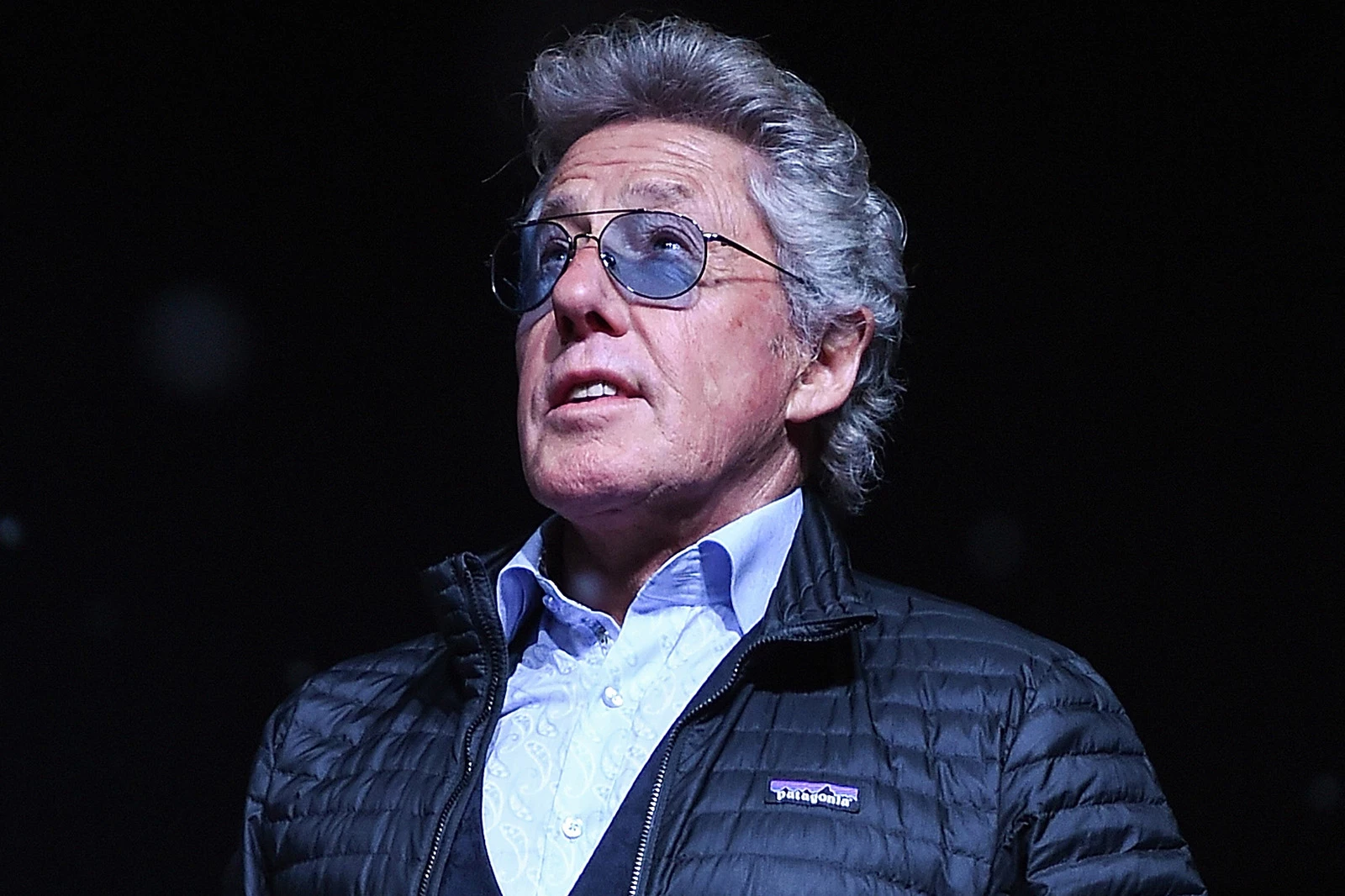
Roger Daltrey Recalls Horror of Who Fan Stampede
by Martin KieltyRoger Daltrey returned to the scene of a tragic fan stampede to help deal with the guilt and grief that has remained with him for 40 years.
Eleven people died in the rush to get into a Who concert on Dec. 3, 1979 in Cincinnati’s Riverfront Coliseum. Under instruction from manager Bill Curbishley, the band performed the show to avoid the risk of further deaths, and were only told what happened after they played. The event is marked with The Who: The Night that Changed Rock, broadcast by WCPO on the anniversary and available to stream here.
“In 1979, it was such a whirlwind period,” Daltrey said. “We were kind of making it up as we went along, pushed and pulled in every direction by everybody. It was a very strange period. And of course, it was just after we lost Keith Moon. And we went back on the road possibly too quickly. … We were a wounded animal. … Pete [Townshend] was having all kinds of problems with substances. And I think it was all down to the grief of losing Keith.”
Daltrey continued: “We come off stage and we had done a wonderful show. It was a great show – one of the best we played on the tour. The crowd were incredible, and then we were told what had happened … and that was like being whacked with a baseball bat around the head. I think we did the rest of the tour without talking to hardly anybody – in total silence. Hell, we hardly talked to each other. We didn’t talk on stage. We just played our music. We just lost ourselves in our music. It was kind of weird. And it didn’t feel like there was any way of making it right.”
He confirmed that going back made him “feel better about it,” while friends and family of the victims said Daltrey's presence was a healing experience for them, too. Scott Kirby, cousin of 15-year-old victim Karen Morrison, said: “When he walked through the door, he was greeted with admiration for being there. It meant a lot to everyone for him to recognize his presence in meeting us. But at the same time it was very evident to us that it was a very cathartic process for him. He lived with this for 40 years, as well.”
Townshend explained why it was better for Daltrey to visit, comparing the experience to the work they both do for cancer charities. “I found it very, very difficult to meet patients who are, like, kids,” Townshend said. “I tried and I couldn’t get through it. I was happy to meet survivors, but I wasn’t that crazy about going into a ward where they’re fighting for life. But Roger, he’s very brave and he goes in and talks to people. He’s met families. He’s met brothers, sisters, and patients, so he’s very, very geared into that.”
He also admitted to disagreeing with the decision to continue the 1979 tour, arguing that they should have remained in Cincinnati instead. When nine people died at a Pearl Jam concert in 2000, Townshend called frontman Eddie Vedder to offer advice: “Don’t leave town.”
The Who recently announced their first concert in the Cincinnati area since the 1979 tragedy. The band will take the stage at BB&T Arena - approximately seven miles south of the Riverfront Coliseum - for a performance on April 23, 2020.
Music's Worst Concert Accidents and Tragedies
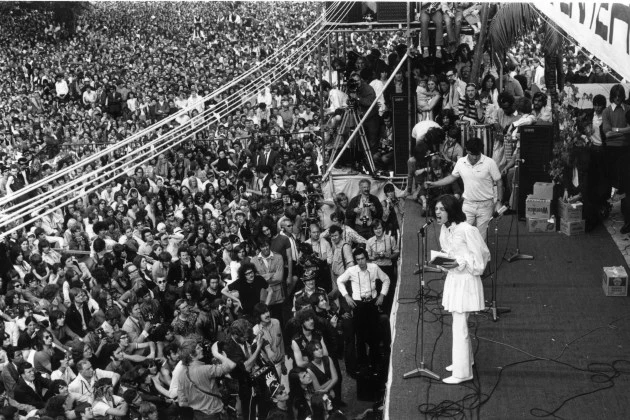
The Rolling Stones at Altamont
When the Rolling Stones headlined a free festival at Altamont on Dec. 6, 1969, it was supposed to be a celebratory wrap-up for their successful U.S. tour. In retrospect, hiring members of the Hells Angels as security was a deadly mistake. Fighting in the crowd led to injuries and one audience member was killed after a scuffle with a member of the motorcycle club.
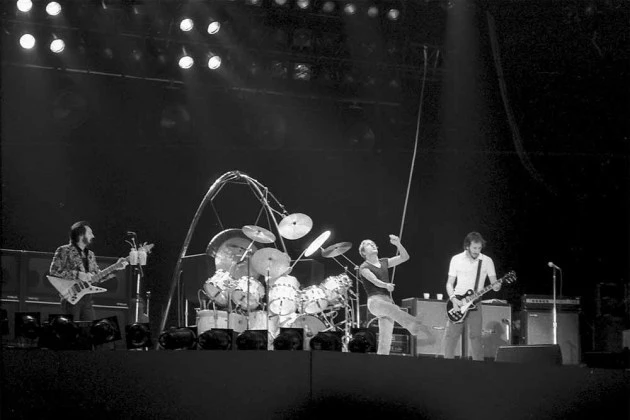
The Who in Cincinnati
On Dec. 3, 1979, 11 people were killed when an impatient crowd of 8,000 fans, who had been waiting outside for hours for a show by The Who, turned into a panicked stampede upon being allowed into the venue. The band were not told of the deaths until after the show, and they were collectively heartbroken. Roger Daltrey wanted to cancel the rest of the tour, but Pete Townshend urged the group to push forward, saying that “if we don't play tomorrow, we'll never play again.”
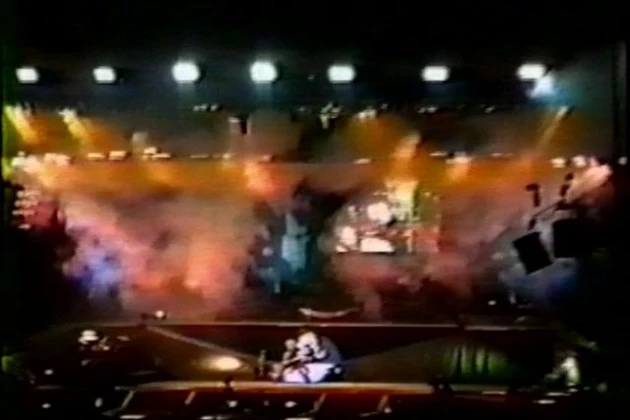
Metallica and Guns 'N' Roses in Montreal
After Metallica was forced to cut their half of a co-headlining concert with Guns 'N' Roses short when frontman James Hetfield was severely burned in an incident with pyrotechnics, Axl Rose further disappointed the audience by showing up late and then leaving an hour into the set due to reported vocal issues. The crowd of over 50,000 people began rioting, smashing stadium windows and setting fires. The incidents on Aug. 8, 1992 caused area police to chase the rioters through the streets, eventually using tear gas to regain control.
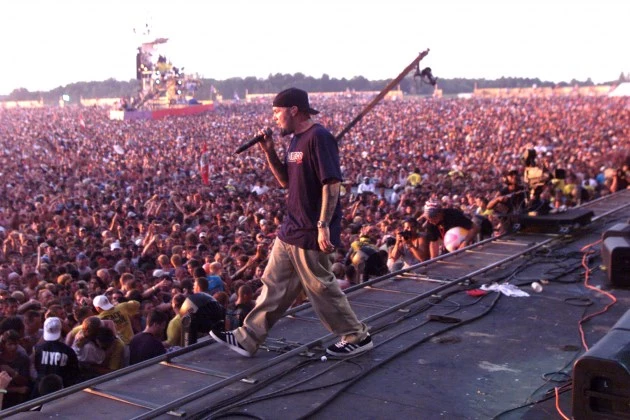
Woodstock '99
Hot temperatures, long lines for expensive water and general poor planning allowed destruction and violence to run rampant as Woodstock '99 was held on July 23-25, 1999. In the end, the event retained very little of the free-spirited peace and love vibes of the original Woodstock festival. Limp Bizkit's set saw fans tearing apart the walls erected to prevent gate-crashers and several rapes were reported. The next night, a bonfire was lit during the Red Hot Chili Peppers' closing slot.
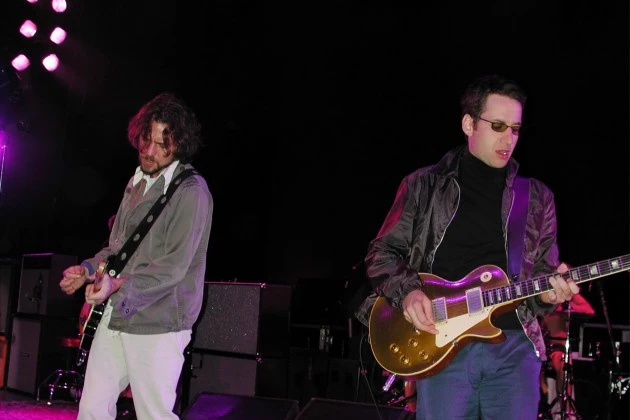
Pearl Jam at the Roskilde Festival
Tragic events during Pearl Jam's set at the Roskilde Festival on June 30, 2000, in Denmark left nine people dead, many of them killed as fans rushed the stage. The always safety-conscious Pearl Jam stopped the show as soon as they learned of the events, but it was already too late. The band have stayed in touch with the families of the victims, referencing the lost in the lyrics of 'Love Boat Captain': “Nine friends we'll never know...two years ago today.”
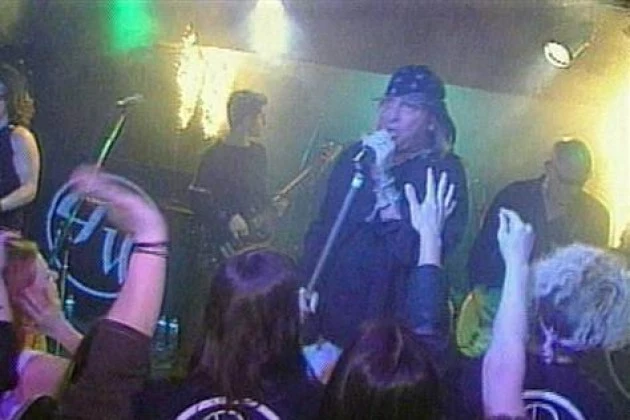
The Great White Fire
One of the most preventable tragedies in recent rock history happened on Feb. 20, 2003, when pyrotechnics ignited soundproof insulation, causing a fire that killed 100 people at a Great White concert in West Warwick, R.I., including the band's guitarist, Ty Longley. More than 200 additional concert goers suffered smoke inhalation, burns and other injuries. Great White tour manager Daniel Biechele was sentenced to 10 years for involuntary manslaughter, and eventually paroled in 2008. The club ownership faced additional criminal charges, and the band, particularly lead singer Jack Russell, were deeply affected by the horrific events of that night.
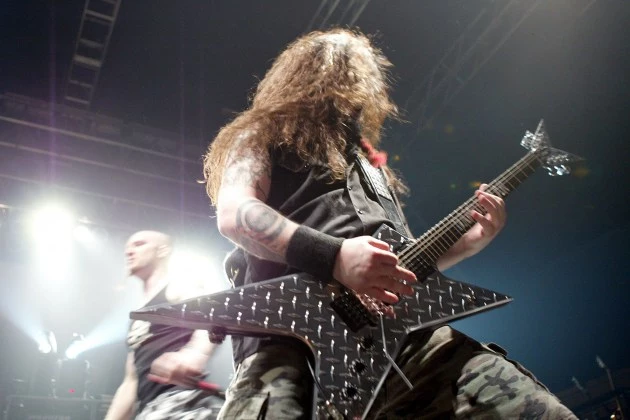
Dimebag Darrell Killed Onstage
A fan with a history of mental illness named Nathan Gale climbed on stage and shot former Pantera guitarist Dimebag Darrell multiple times in the head during a concert on Dec. 8, 2004 in Columbus, Ohio by his new band, Damageplan. Three others were killed before Gale was brought down by a police officer's gunshot.
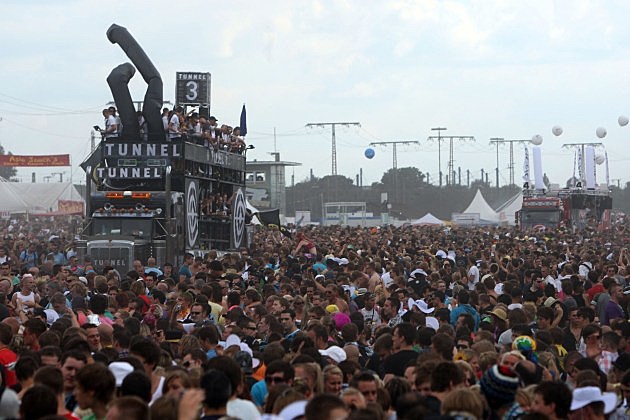
Love Parade
More than 500 people were injured and 21 people died on July 24, 2010 at an annual electronic music festival in Duisberg, Germany, which drew more than 1 million people to an area that had capacity for roughly 250,000. Passage to the area was mainly through tunnels which quickly became overcrowded with people trying to get to the show. Even though the tunnels were eventually closed, it did little to quell the deadly issues with capacity. As a result of the these tragedies, all future Love Parade events have been canceled.

The 2011 Indiana State Fair
Seven people died as a result of a weather-induced collapse of the stage prior to Sugarland's scheduled performance on Aug. 13, 2011 at the Indiana State Fair. Sugarland themselves were “stunned and heartbroken” by the events, calling them “tragic” and saying that there were “no words” to describe what had happened. State fairs and other similar events of a temporary nature are currently under intense pressure to put new safety measures in place in the future.
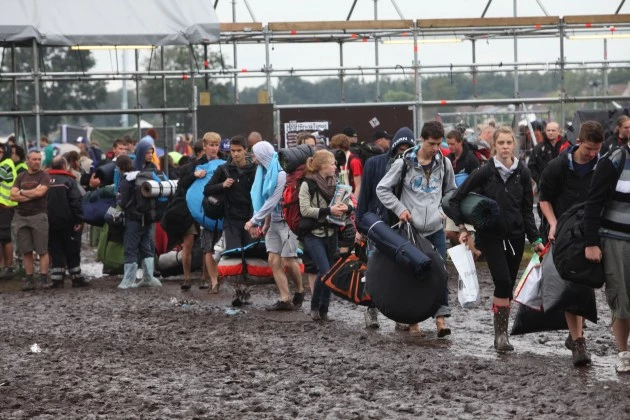
Pukkelpop Music Festival in Belgium
Severe storms in Belgium caused multiple stages to collapse on Aug. 18, 2011 at the Pukkelpop Festival, where a diverse lineup of acts were scheduled to perform, including the Offspring and the Foo Fighters. After the weather-related events left four people dead, the remainder of the festival was canceled. Local officials said that the intensity of the weather had not been predicted by local meteorologists, calling the storm “unprecedented” in comparison to previous tropical weather events.

Paris Concert Terrorist Attack
On Nov. 13, 2015, terrorists attacked a busy Paris nightlife scene, which left more than 100 people dead and many more injured. A concert by Eagles of Death Metal was hit the hardest, where more than 80 people were killed by the terrorists. Authorities had the situation under control within hours, but the tragedy marked one of the deadliest attacks on the Western world since 9/11.
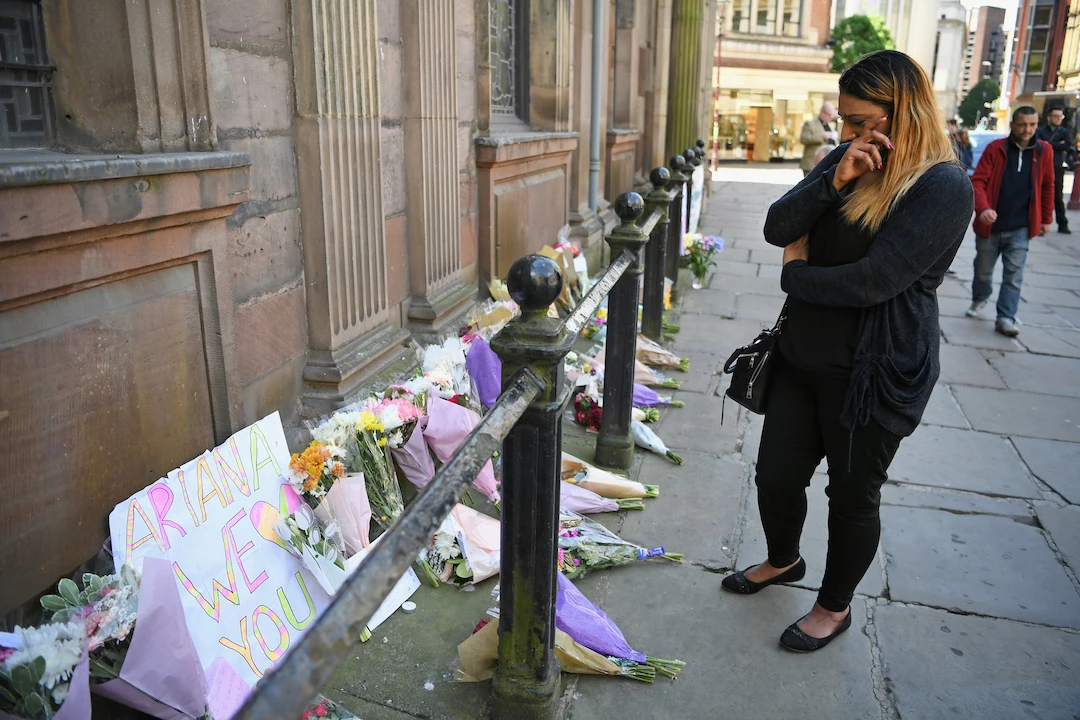
Manchester Arena Terrorist Bombing
A terrorist attack at a May 22, 2017 concert by pop star Ariana Grande in Manchester, U.K., took the lives of more than 20 people – a number of whom were children. An additional 59 people were injured, some gravely. The suicide nail-bombing, which happened as concertgoers left following the show, was the deadliest terror attack on British soil since the 2005 London bombings.
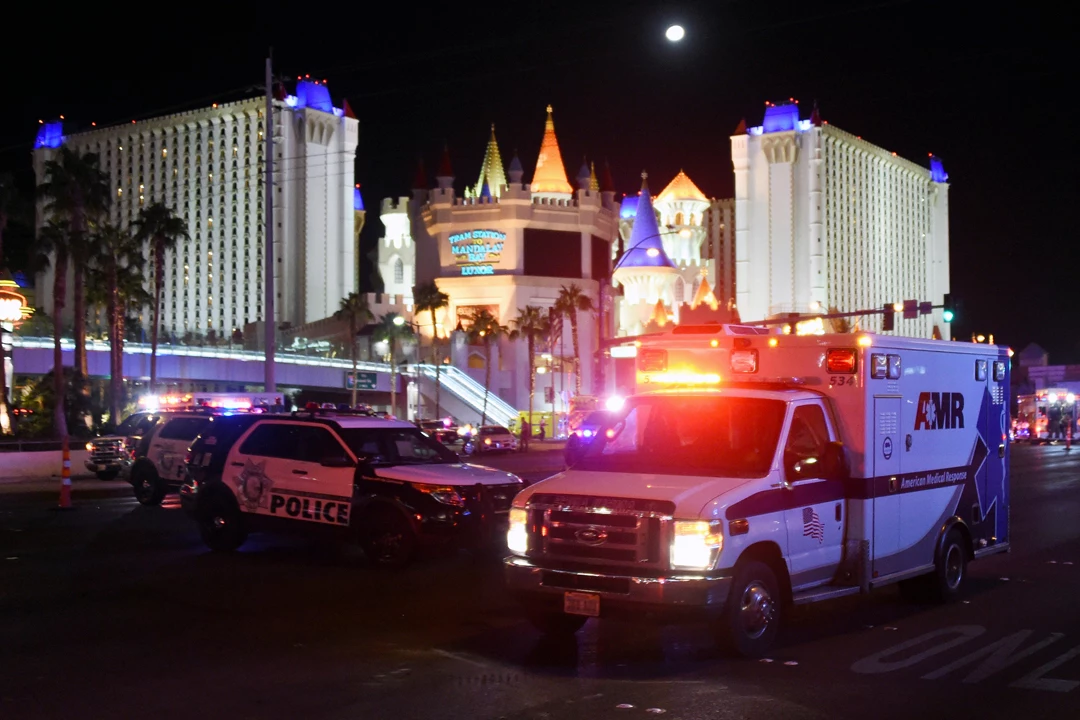
Las Vegas Music Festival Mass Shooting
At least 50 people were killed and hundreds more injured when a lone gunman opened fire on the crowd at a country music festival in Las Vegas, Nevada on Oct. 1, 2017.
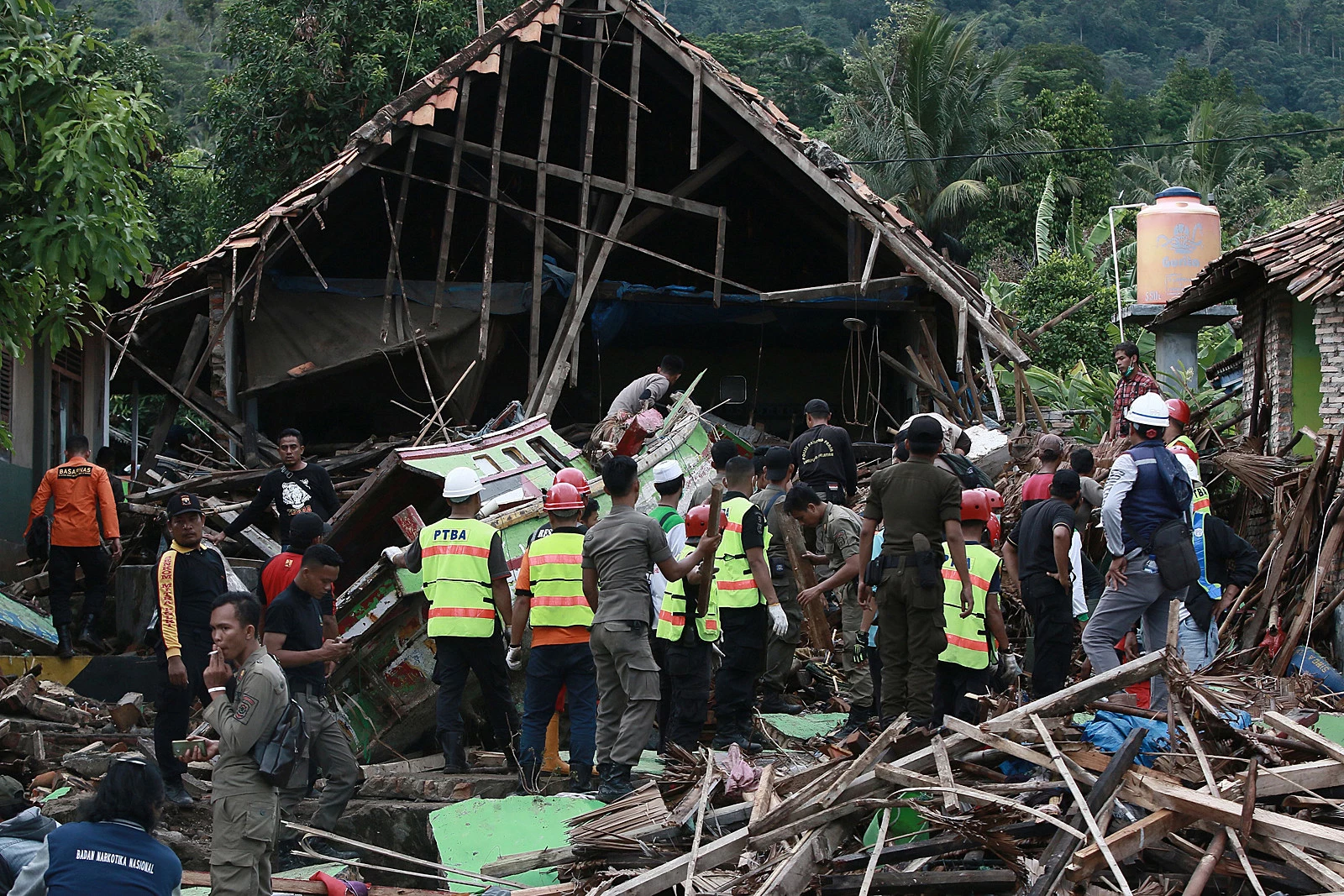
Indonesian Tsunami
The tsunami that struck Indonesia in December 2018 killed Muhammad Awal Purbani, the bassist for Seventeen, and their road manager, Oki Wijaya. The band's guitarist, drummer, the lead singer's wife and another member of their crew were among the more than 800 people who were reported missing.
Why Don't More People Love This Album by the Who?